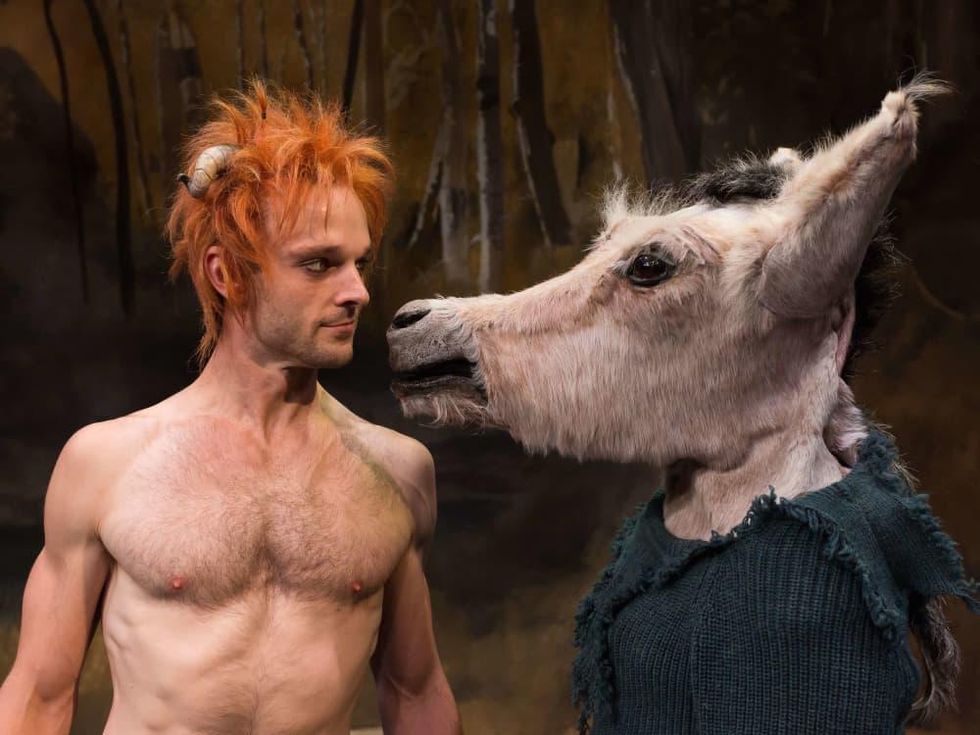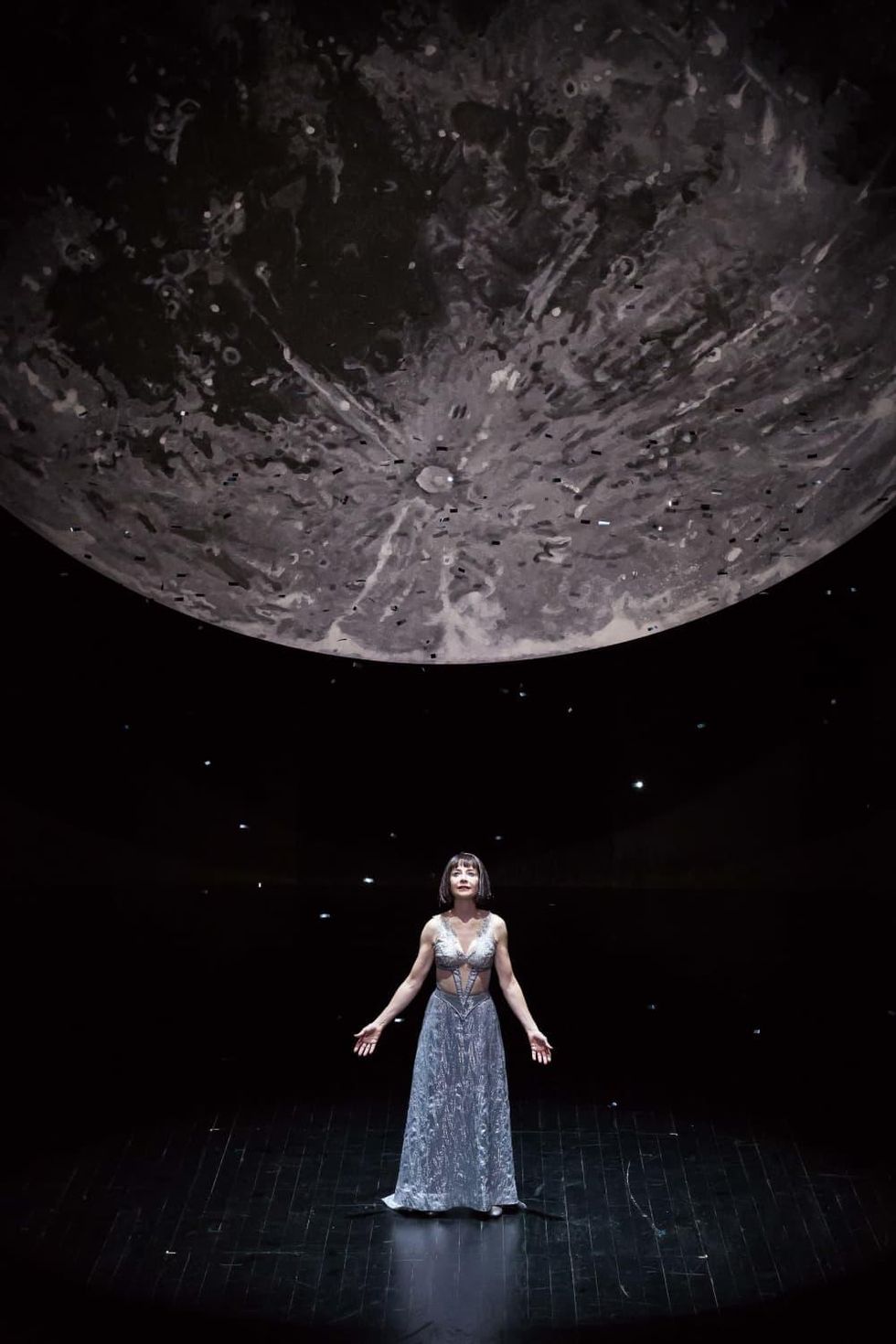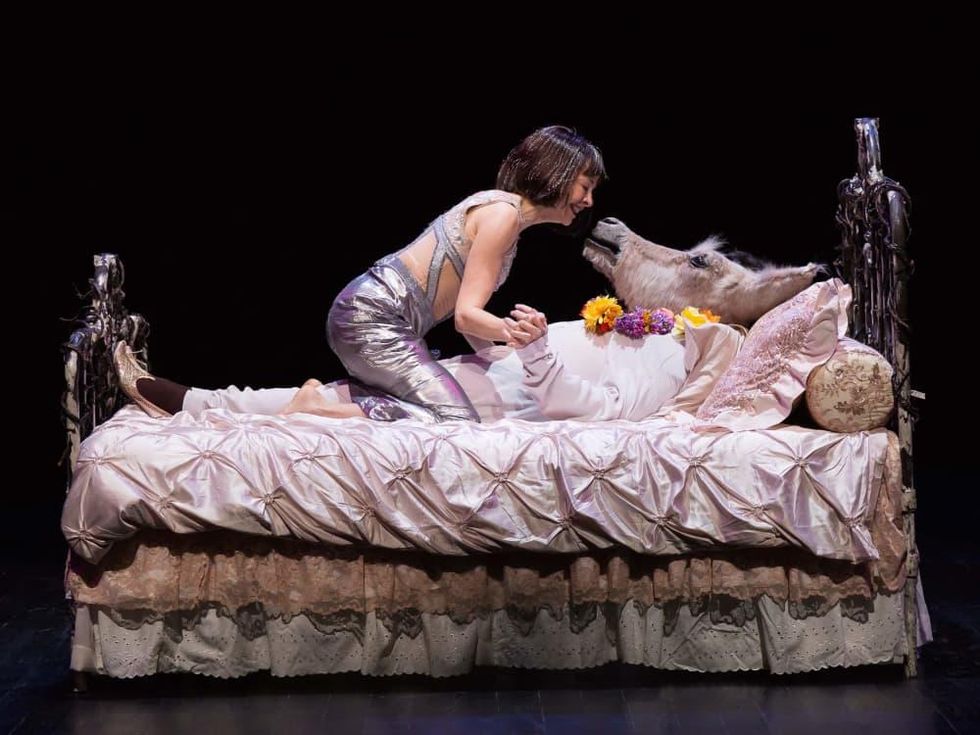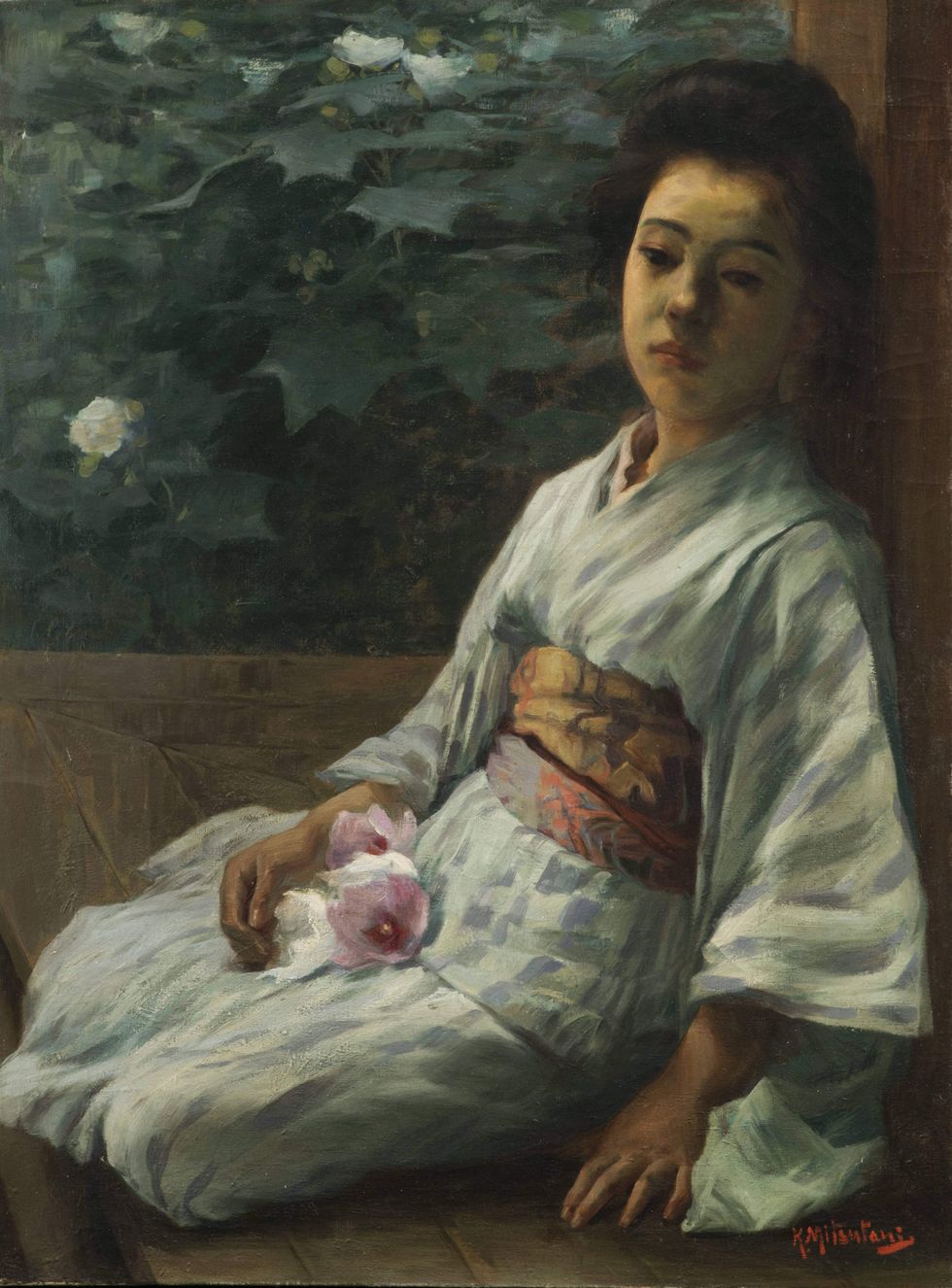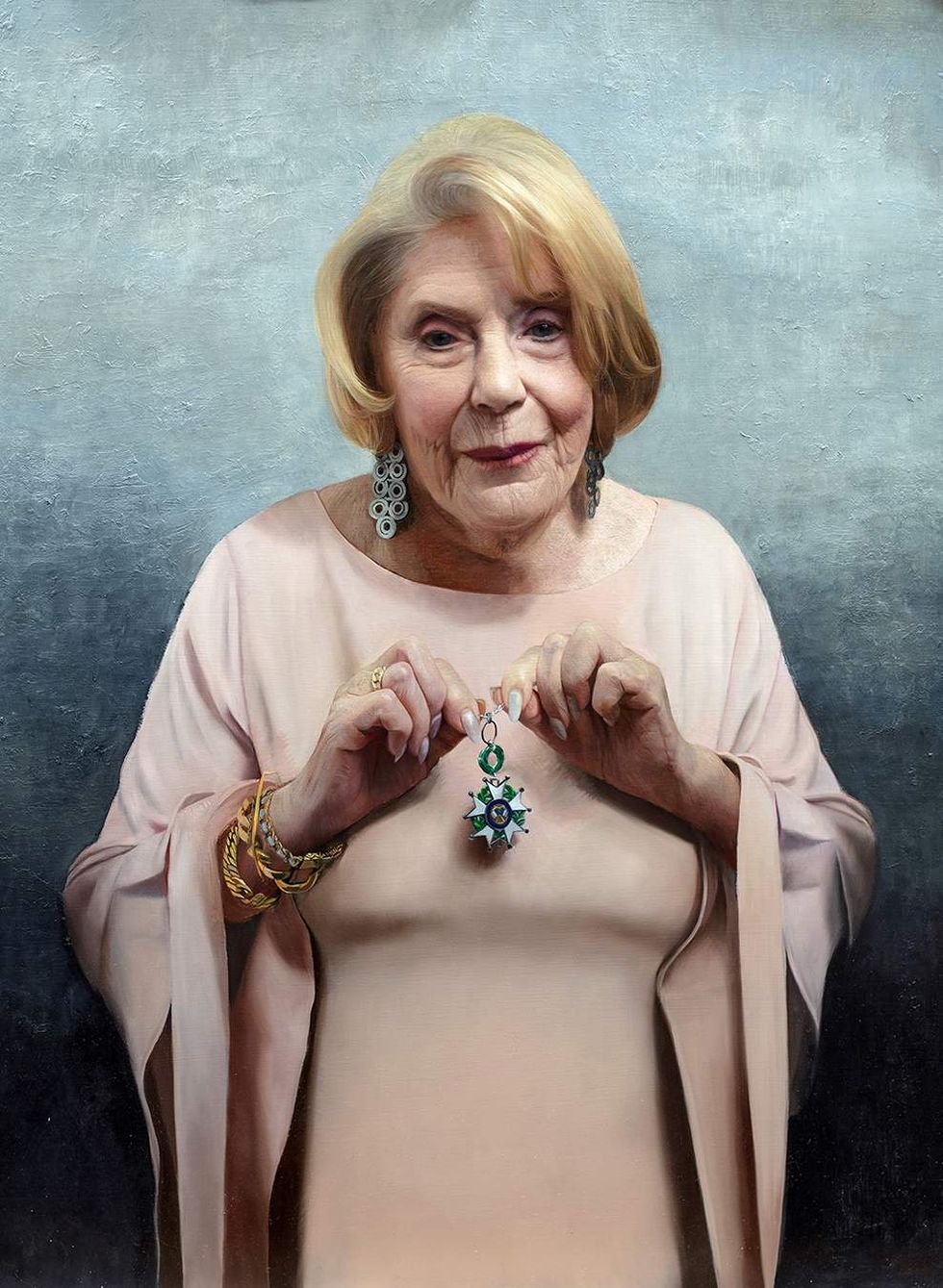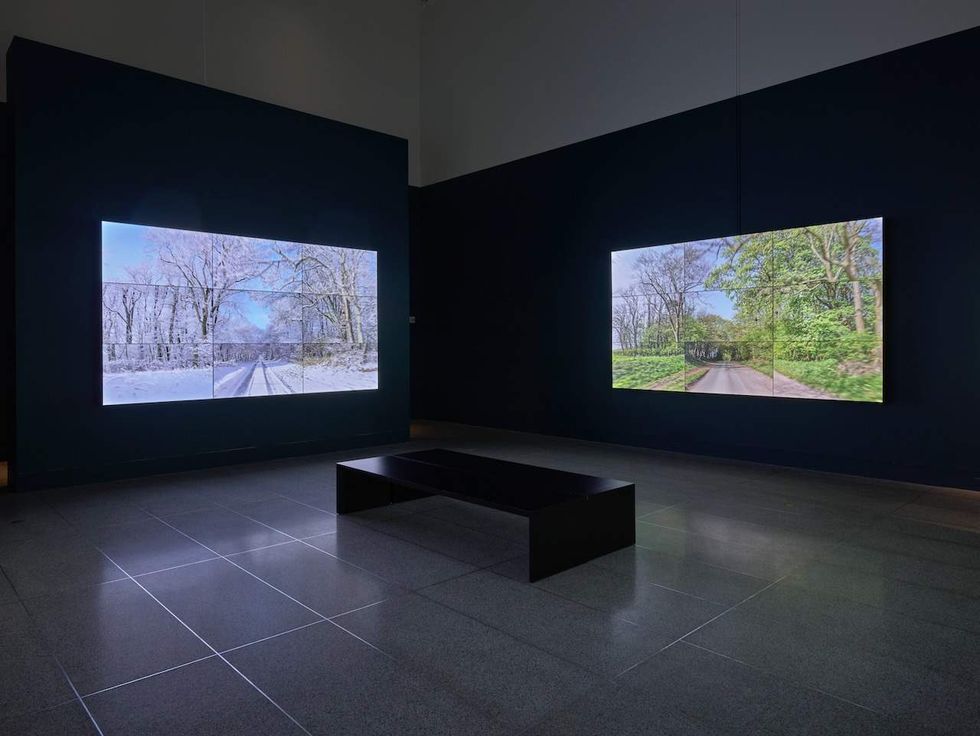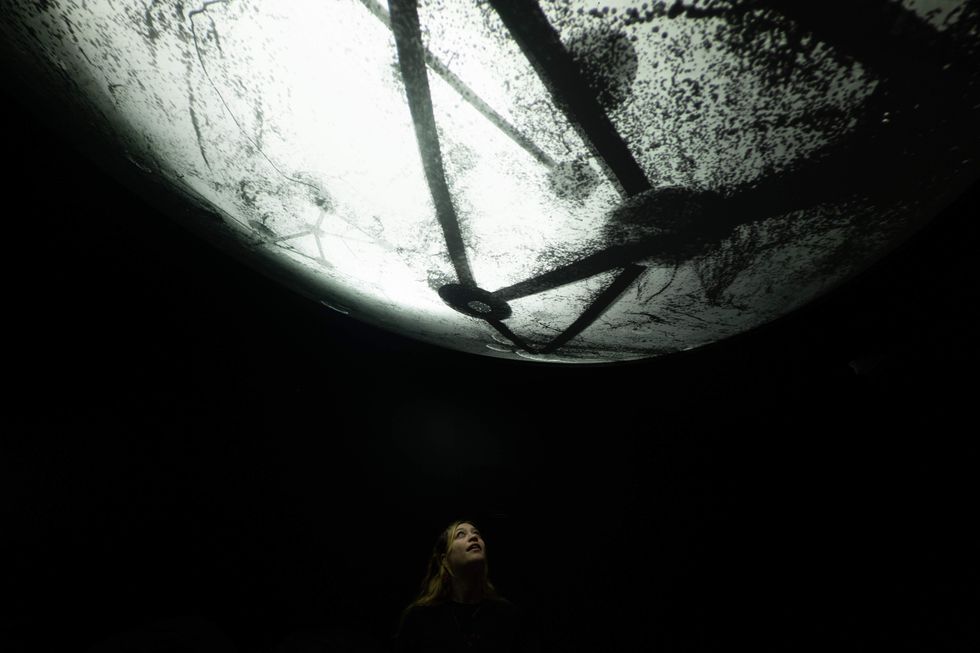The Review Is In
Alley’s A Midsummer Night’s Dream is full of music and noise, but sometimes the clatter is too much
It’s in William Shakespeare’s late play The Tempest that Caliban describes his island home as “full of noises.” Sometimes he hears celestial song, sometimes he hears howling.
As I watched the Alley Theater’s new production of Gregory Boyd's A Midsummer Night’s Dream — a production whose stellar moments are too often overshadowed by excess — I found myself wondering where the music was in all the noise.
A Midsummer Night’s Dream is about the terrifying discord that interrupts the sweet concord of love and affection. Three distinct worlds — aristocrats, commoners, and fairies — collide to hilarious and sometimes disastrous effect in the heady summer night. A certain amount of confusion is then par for the course. And there is, quite literally, a great deal of sound in Midsummer: Braying hounds, singing fairies, and lovers that alternately coo and squabble. A good bit of live music arises thanks to the inventive and responsive duo of Ryan Chavez and Mike Whitbread.
But to those sounds the production couldn’t stop adding more and more layers. Characters deliver some lines as songs (in a variety of musical genres). The fairies stalk on stage like punk rockers gone wrong in all the wrong ways. Excruciatingly literal sound effects pile up: sitar strumming at the mention of India, gurgling at the mention of water, barking at the mention of dogs, vomiting at the mention of sickness. As the sound went, so too did physical and facial gestures: all overboard.
The real magic of the production happens in the play within the play, as the rude mechanicals stage their unintentionally hilarious version of the tragic story of Pyramus and Thisbe on the occasion of the Duke’s wedding. This is always a favorite moment in productions of Midsummer and here the Alley did not disappoint.
James Black offers a surprisingly deadpan Bottom, the wannabe actor who wants to play every part but whose theatrical aspirations are interrupted by a fairy plot. Black is at his best when, in the final act, he plays to pretentious perfection the part of Pyramus, which Shakespeare wrote as a send up of the old fashioned and overblown writing and acting styles of the generation that preceded him.
John Tyson plays Flute the bellows-mender who is forced to take on the only female role in the mechanicals’ play. There was no better physical comedy the whole night than when Tyson took the stage as Thisbe. In a blond wig and a southern drawl that would give Tennessee Williams chills, he minced about magnificently. Tyson pops one of the balloons strategically stuffed beneath his shirt and then elaborately blows up and ties another balloon to replace it. In the midst of it, he himself began to laugh, one of those rare show-stealing moments when an actor absolutely should crack himself up along with everyone else.
David Rainey managed to make Snug the Joiner’s bit part as a lion larger than life. In rehearsal, Snug is rather timid as the lion, but he goes unexpectedly and inappropriately wild in performance to great effect. The rude mechanical play is an ensemble piece and thus required the skill not only of Black, Tyson, Rainey but also of Jeffrey Bean, Todd Waite, and Paul Hope, all of whom performed together with clockwork efficiency.
And in this success the problem with the production became clear. The whole script seemed churned through the mill of slapstick, which works for the rude mechanicals' play but far less well elsewhere. There’s comedy in the earlier acts, even some absurdity, but to play everything with such extremity obliterates emotional range. A Midsummer Night’s Dream is more than just funny. It’s moving and menacing and mysterious, which too often gets lost this production.
Ideally, the four lovers would be as synchronized as the mechanicals. In spite of their many differences and conflicts, they’re actually hard to tell apart, which is the source of so much humor. They even get confused themselves. Elizabeth Bunch offers up a rather convincing and passionate Hermia while Michael Brusasco played a wonderfully whiney Demetrius. Less convincing were Chris Hutchinson as a raspy Lysander and Melissa Pritchett as an overblown Helena. Helena is a drama queen, to be sure, but overacted overacting is more than grating.
John Feltch makes for a stately king, in the doubled role of Oberon and Theseus. Jay Sullivan made for a solid Puck, but perhaps the absurdly literal satyr costume — complete with hairy bloomers, leather codpiece, tail, and horns — got in the way. Josie de Guzman’s quieter moments as both Titania and Hippolyta were moving, but as the love-crazed fairy queen she was directed to extremes that were at times difficult to watch.
The Alley’s A Midsummer Night’s Dream is full of music and noise. Where it relaxes and trusts the play, it shines and is a real crowd-pleaser. But it seems to forget that theater often works best without all the bells and whistles.
Joseph Campana is Alan Dugald McKillop chair of English at Rice University where he teaches and publishes on the works of William Shakespeare (the 400th anniversary of Shakespeare's death is being commemorated this year). Campana has never performed the role of Puck and only occasionally gets lost in the woods.
